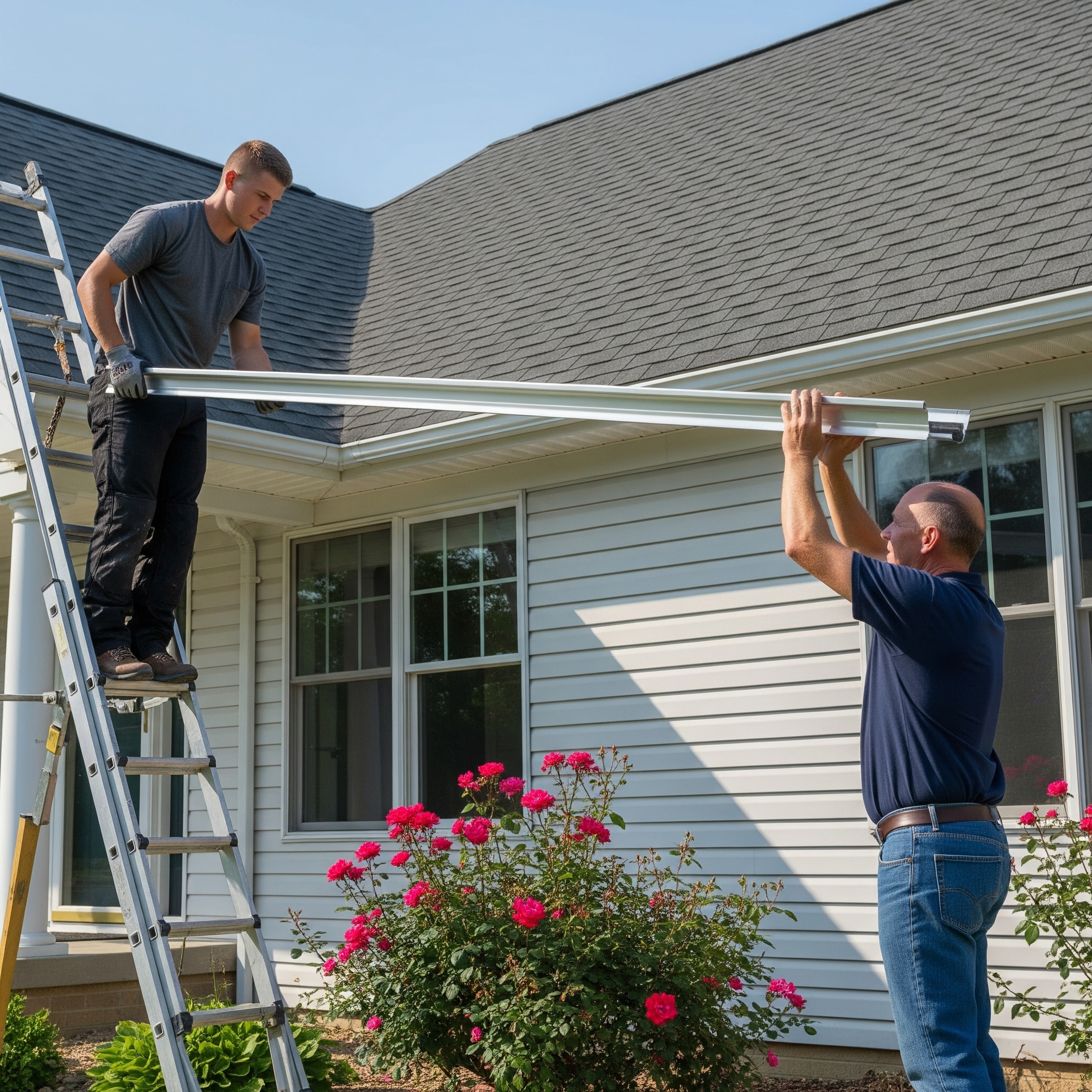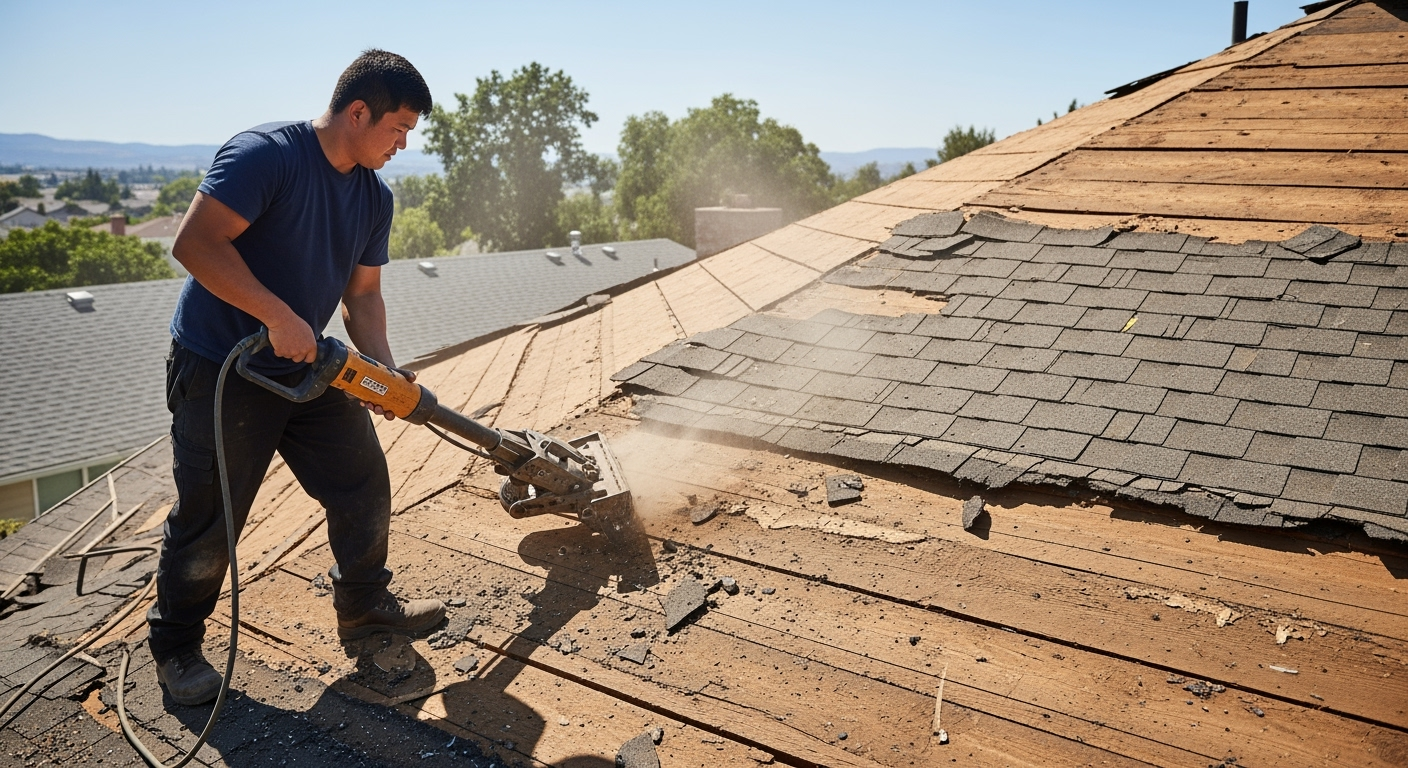Table of Contents
Win more bids. Close more jobs. Start with our newsletter.
Get exclusive insights, tips, and trends your competition doesn't want you to know.
If you're wondering how much does an estimate cost in today's roofing market, you're asking the right question. The estimate process is your first real shot at making an impression with potential customers, and getting the pricing strategy wrong can cost you deals before you even get started.
Here's the thing most contractors don't realize: how much do contractors charge for estimates isn't just about covering your costs—it's about positioning your business in the market and setting the right expectations from day one. Think of it like a first date. Show up underdressed and unprepared, and you're probably not getting a second chance.
The estimate pricing landscape has shifted dramatically over the past few years, and contractors who haven't adapted are leaving money on the table. Let's dive into what the market actually looks like and how you can position your business to win more deals.
The Current State of Estimate Pricing
The roofing industry has traditionally operated on free estimates, but that's changing fast. According to recent industry data, about 60% of contractors still offer completely free estimates, while 40% have moved to some form of paid consultation model.
Here's what's driving this shift: customers are getting smarter about the process, and they're starting to understand that quality estimates require time, expertise, and often specialized equipment. A contractor who shows up with a tablet, drone capabilities, and comprehensive measurement tools isn't the same as someone with a ladder and a notepad.
The average paid estimate in the roofing industry ranges from $150 to $500, depending on the complexity of the project and regional market conditions. But here's where it gets interesting—contractors who charge for estimates often see higher conversion rates than those who don't.
Regional Variations in Estimate Costs
Northeast and West Coast Markets In high-cost-of-living areas like New York, California, and Massachusetts, contractors routinely charge $300-500 for detailed estimates. The market has matured to the point where customers expect to pay for expertise, and contractors who try to compete on free estimates often find themselves working with price-shopping customers who aren't serious about moving forward.
Midwest and Southern Markets These regions still lean heavily toward free estimates, with only about 25% of contractors charging for initial consultations. When they do charge, the typical range is $100-250. The market is more price-sensitive, but it's also more relationship-driven, which can work to your advantage if you play it right.
Storm-Prone Areas In regions that regularly deal with hail, hurricanes, or severe weather, the estimate game changes completely. Contractors often offer free storm damage assessments but charge for detailed repair estimates. This hybrid approach helps them capture insurance work while still maintaining professional standards for cash customers.
When Free Estimates Make Sense (And When They Don't)
Look, I'm not going to tell you that charging for estimates is always the right move. Sometimes free estimates are the smart play, and sometimes they're just leaving money on the table.
Free estimates work best when you're dealing with straightforward projects, established customer relationships, or markets where the competition hasn't evolved past the "race to the bottom" mentality. If you're bidding on a basic shingle replacement in a neighborhood where everyone expects free estimates, fighting that expectation might cost you more than it's worth.
But here's where free estimates start hurting your business: complex projects that require detailed measurements, engineering assessments, or multiple site visits. If you're spending four hours putting together a comprehensive estimate for a commercial project, and the customer is getting five other "free" estimates, you're essentially subsidizing their shopping expedition.
The Psychology of Estimate Pricing
This is where understanding how buyers actually buy becomes crucial. When customers pay for an estimate, they're psychologically invested in the process. They're not just collecting quotes to show their spouse—they're serious about moving forward.
A quote crm system can help you track this phenomenon. Contractors who use proper CRM tools to track their estimate-to-close ratios consistently report that paid estimates convert at 60-70% rates, while free estimates typically convert at 15-25%.
Think about it from the customer's perspective. If they're paying $250 for an estimate, they're not going to pay another $250 to your competitor just to compare prices. They're going to engage with your proposal, ask questions, and actually evaluate the value you're providing.
Technology's Impact on Estimate Efficiency
Modern roofing contractors have tools that didn't exist five years ago. Drone surveys, satellite measurement systems, and comprehensive quote crm platforms have transformed what a professional estimate looks like.
These tools cost money to implement and maintain, but they also deliver value that customers can see and appreciate. When you show up with a drone and can provide detailed measurements, photos, and 3D models, you're delivering something that justifies a consultation fee.
The contractors who are winning in this environment aren't necessarily the cheapest—they're the ones who demonstrate professional competence and use technology to deliver superior customer experiences.
Building Value Into Your Estimate Process
Here's the key insight most contractors miss: how much does an estimate cost isn't just about the money—it's about the value you provide during the process. If you're going to charge for estimates, you need to deliver something that customers can't get from your competitors.
This might include detailed written reports, drone footage, thermal imaging for leak detection, or comprehensive project timelines. The goal is to make your estimate process so valuable that customers see it as a consultation rather than just a price quote.
Smart contractors are also making their estimate fees refundable against signed contracts. This removes the customer's risk while still filtering out the tire-kickers who aren't serious about moving forward.
What High-Performance Contractors Are Doing
The contractors who are scaling successfully in today's market have figured out that estimate pricing is really about customer qualification. They're not trying to get every lead—they're trying to get the right leads.
These high-performance contractors typically use a tiered approach: free basic assessments for simple projects, paid detailed estimates for complex work, and premium consultation services for high-end customers. This allows them to serve different market segments while maintaining profitability.
They're also leveraging technology to make their estimate processes more efficient. A good quote crm system can reduce estimate preparation time by 40-50%, which means you can afford to be more competitive on pricing while still maintaining margins.
Making the Right Choice for Your Market
The question of how much do contractors charge for estimates doesn't have a universal answer because every market is different. What works in Denver might not work in Detroit, and what works for residential might not work for commercial.
The key is understanding your local market, your customer base, and your own operational costs. If you're spending $200 in time and resources to prepare a detailed estimate, offering it for free means you're essentially gambling that you'll win enough jobs to cover the cost of all the estimates you don't win.
Start by tracking your current estimate-to-close ratios and the actual time you spend on estimate preparation. This data will help you make informed decisions about pricing rather than just guessing what the market will bear.
Your estimate process is often the first real interaction customers have with your business. Make it count, price it appropriately, and use it as an opportunity to demonstrate the professionalism and expertise that sets you apart from the competition.



Blog / Guide Title CTA
Once you've created a strong Linkedin profile, you can leverage it as part of your broader marketing strategy. Use your Linkedin to share content, join industry groups, and network with others in the contracting space.
If you're looking for additional marketing support, consider partnering with JobNimbus Marketing to maximize your business growth. Schedule a call with our team to learn how to boost your marketing efforts today.

Blog / Guide Title CTA
Once you've created a strong Linkedin profile, you can leverage it as part of your broader marketing strategy. Use your Linkedin to share content, join industry groups, and network with others in the contracting space.
If you're looking for additional marketing support, consider partnering with JobNimbus Marketing to maximize your business growth. Schedule a call with our team to learn how to boost your marketing efforts today.

Download Our Free Tips for Recession-Proofing Your Company
We’ll show you five simple things you can do to help your business survive a recession.









